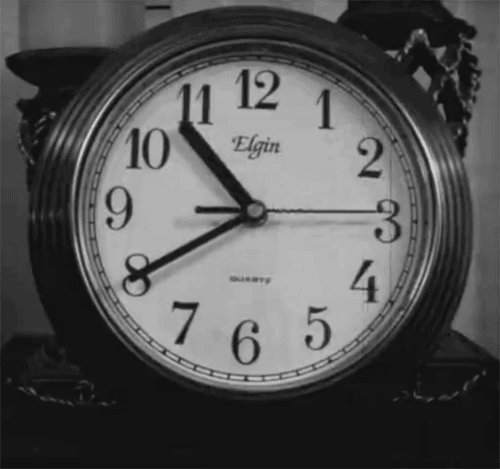Just when we thought the maquinita war was over, our least favorite local newspaper does a puff piece about the stupid machines...
“No! No! No! Arrrrgh,” cried out Barbara Sciandra in a strangled tone, hands clutching the sides of her head in anguish as the numbskull newbie in front of the video slot machine — that is, me — botched yet another game, another 8 cents frittered away to rookie incomprehension.
“Sorry,” she continued a moment later, in a calmer tone. “But you had three ‘cross fever’ symbols in the corners. You should have held them and raised your bet. If you get four, a jackpot is almost inevitable.”
Actually, the jackpot would have been entirely theoretical, as were those 8 cents I lost. We were playing the machine secretly and for free, in a South Florida arcade closed last month when the Florida Legislature passed a harsh new video gambling law.
The owner opened it up, reinstalled the computer motherboards in several of the machines, and invited a few of the arcade’s regular customers back for an afternoon so I could test one of the frequent criticisms of the slots: that they’re pure games of chance in which skill plays no part.
The no-skill allegation came up again during the legislative debate this spring over a bill, which eventually passed, to ban video gambling in senior arcades, gas stations and mom-and-pop cafes. “They are not games of skill,” lobbyist Ron Book — who represents pari-mutuel racetracks, which wanted to stamp out competition for their casinos — told the Florida House. “They are clearly games of gambling and chance.”
Nobody denies the machines involve gambling; you play them for pennies in hopes of winning a much more valuable prize. And they certainly involve an element of chance, like all games, even chess. (Many statistical studies have shown that the player who gets the white pieces and the first move, which is typically decided with a coin flip or something similar, wins between 52 and 56 percent of the time.)
But if skill plays a part in the video games, even a small one, then they aren’t gambling devices under Florida law. And if my afternoon at the arcade means anything, skill matters a lot.
Three arcade regulars — including a mentally handicapped woman — beat me like a drum for hours as we tried out various machines. Regular players (some of them visited the arcade six times a week before the new law closed it) have learned strategies and physical skills that help them win on a regular basis.
“Don’t feel bad,” another regular — retired furniture saleswoman Gail May, herself a pretty fair player — consoled me as Sciandra piled up winnings while I lost and lost and lost. “I don’t think I’ve seen her leave this place once without at least a $25 gift card,” one of the prizes that the arcade used to award to big winners.
“It’s like anything else, if you practice and pay attention and work at it, you can win,” said Sciandra, 72, who retired a few years ago from her job as a cafeteria worker in the Broward school system. “Not everybody does that — some people are content to just punch the button and let the game play out, like you would a regular slot machine in a casino. But that’s not the way I do it.”
The video slots (or maquinitas, little machines, as they’re often referred to it in Miami-Dade County) superficially resemble their casino counterparts. You put in a coin (or swipe a smart card), punch the start button and several rows of little images — fruits, bells, bugs, flowers, whatever — start spinning. You punch another button to stop them, and if the images align in designated patterns (five grapes in a row, for instance) you win credits that can be turned in for prizes.
But that’s where the similarities end. Unlike casino slots, where the player does little more than stick in a coin, video slots offer players ways to alter the action through betting strategies and physical and mental skills:
• Many of the video machines allow players to hold onto some of the images, double their bets and play again — not unlike tossing out cards and drawing others in poker. That’s what Sciandra wanted me to do with those “cross fever” symbols, hold them for another play. “You can really raise your odds that way,” she said.
• Wild-card images that make it easier to complete a pattern, or raise the value of a jackpot, or offer some other advantage, periodically flicker across the game screen. An alert player with quick eye-hand coordination can lock them in, improving his chances of a win.
• Some machines have what are known as “skill stop” buttons that allow the player to individually freeze each column of spinning images. Because the images spin in repetitive patterns, that means a good player could line up, say, five cherries, one at a time, to win.
Many critics of the machines don’t believe that’s possible. (Lobbyist Book, in his speech to the Florida House, specifically denounced the idea as a fraud.) And, watching the mad blur of the spinning images, I certainly thought it was impossible.
But that was before I watched Gale Davis play Queen Bee, the Rolls Royce of video slots, the machine that’s used in video-slot tournament pay. Gale’s husband owns a senior arcade in Port St. Lucie (they were just visiting South Florida for the day) and she has put in countless hours on the Queen Bee. She can read its swirling colors like a book.
“We’re going to look for birds down here in these two panels in the lower right,” she announced after watching the images flicker for 10 or 15 seconds. Waiting... waiting... and then she pounced on the stop-button. “Yessss!” she squealed — and sure enough, there were the birds. The only thing I couldn’t figure out was what she was excited about. She was relentlessly successful in picking her target, hitting 10 out of 12 at one point.
The 59-year-old Davis was, nonetheless, apologetic. “This isn’t my regular machine,” she explained. “So the patterns that the images move in are different. But there’s always a pattern, and you can figure it out if you play for a while. See how each image is a different color? So even though it’s moving so fast that you can’t really make out the flower image, you know where it is because the yellow flashes by. Of course, the machine tries to fool you. See this little picture of a green bug? When it’s spinning, it looks red. But you can learn things like that.”
None of this is a surprise to the owners and operators of video slots. “I had a lot of regulars who went months at a time without paying me a single dime,” said Gale Fontaine, president of the Florida Arcade Association, who owns a now-shuttered senior arcade in Pompano Beach. “They just kept playing on their winnings. The arcade makes its money on the large number of customers who are just there for the fun of playing and don’t work at it very hard. But I’ve got some who just win all the time.”
The question of whether the games involve skill is much more than academic. Fontaine nearly went to jail over it in 2006 when Broward prosecutors charged her with operating an illegal gambling house (a felony) and possession of an illegal gambling device — a Queen Bee machine just like the one I played. She won the case at trial, but only after spending $250,000 on her defense.
Fontaine's case is just one of eight during the past few years in which arcade owners have beaten back courtroom attempts to label their games pure matters of chance. Fort Lauderdale attorney Michael Wolf, who represents the Florida Arcade Association, says jurors who actually see how the machines operate inevitably think that luck is not enough to beat them. “The application-of-skill issue has been tried in many courts across the state,” he said, “all with a finding that there is.”
FUCK! While the Miami Herald's Glenn Garvin is sitting around with these old farts playing slot machines trying to figure out an angle to appease the illegal gaming industry, let's take a look at a video I made a few years ago showing an old man getting a $900.00 pay out from one of these harmless machines...
Funny, how that old man getting paid out by that machine spent all afternoon pumping nearly $2,000 into that machine before it paid out the $900 in that video. How harmless is that? As far as the games being "games of chance" that's even more bullshit as the business owner had showed me in the past how he manipulated the dip switches on the machines circuit boards to alter how often they paid out or not! I've been personally fighting these god damn machines for the last 8 years as a tenant in one of my commercial properties had a cafeteria with seven of these machines. I tried for years to get the machines out both with the county and the city police to no avail. The funniest part of all of this is that my property was located just three blocks west of another cafeteria, Via del Rio, that had even more of these machines, plus illegal drug dealing, prostitution, etc.
For years despite all the fighting, stabbings and shootings at that cafeteria, we could never figure out how they continued to do business with relative impunity from the police till one day someone told me that the business owners husband was someone high up in the City of Miami PD. Turns out that person was none other than former City of Miami police officer Hector Mirabile who went on to become the City of South Miami city manager! Mr Mirabile and his family owned the cafeteria/pool hall/illegal gambling den/etc till a City of Miami cop shot and killed one of their patrons...
Shortly after this murder, the Mirabile's sold the business to my ex tenant and rid me once and for all of all these god damn machines from my property.
It's too bad Mr. Garvin didn't go out to the bars and corner markets of Miami and Hialeah before he wrote this article rather than go hang out with the old folks in Broward county. What a crock of shit.

















